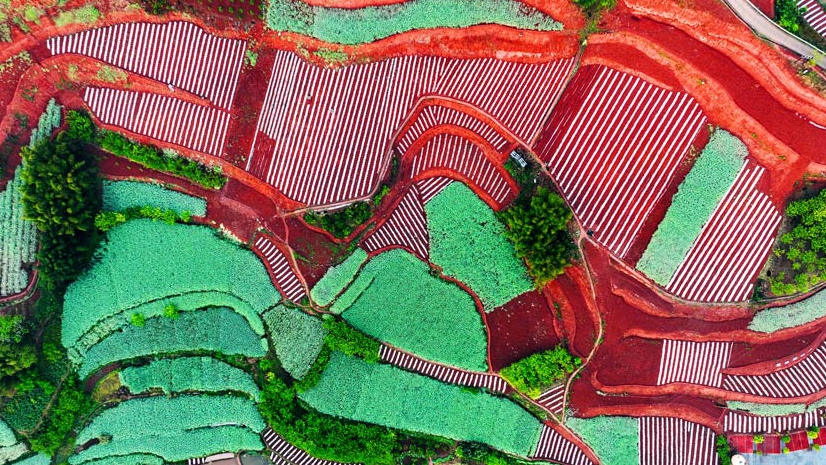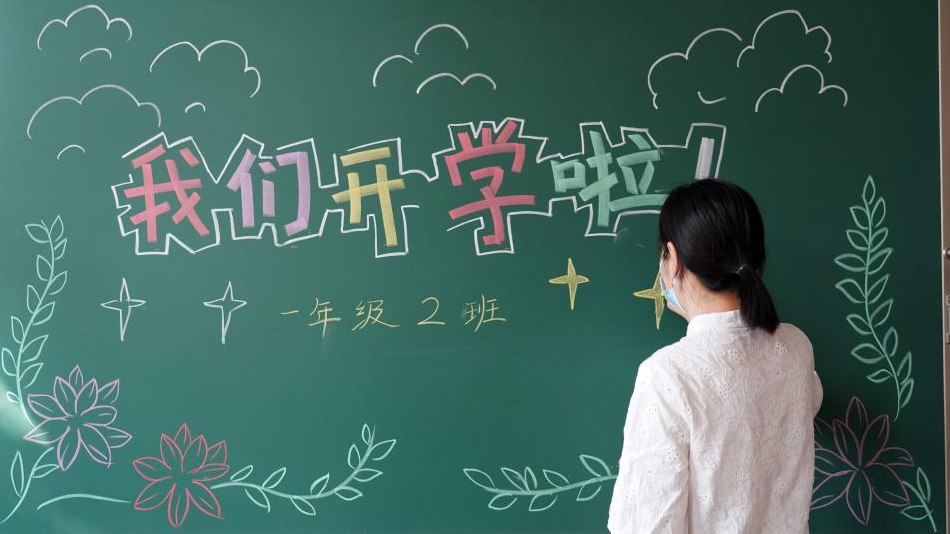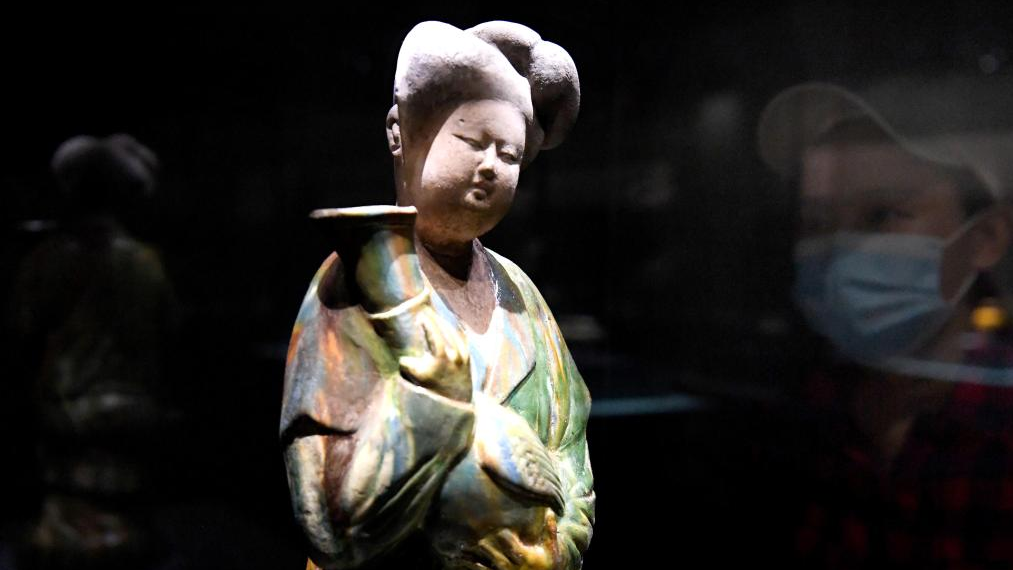Dehua county in China's Fujian carries forward traditional porcelain craft after embracing greater innovation
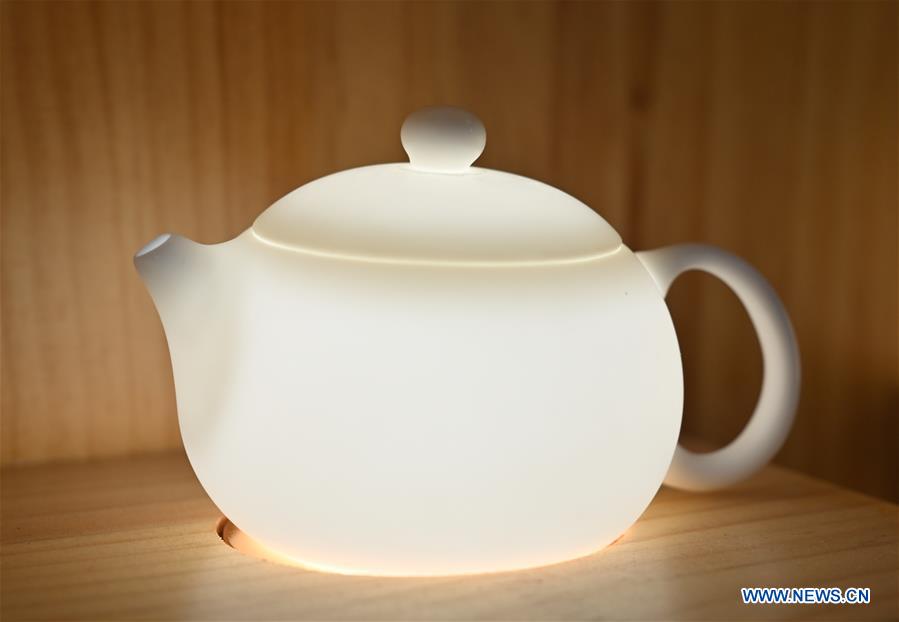
Photo taken on Oct. 20, 2020 shows a piece of white porcelain teaware crafted by artisan Xu Jinbao in Dehua county, Quanzhou, southeast China's Fujian Province. (Xinhua/Song Weiwei)
Dehua porcelain is a type of white Chinese porcelain made in Dehua county, Quanzhou city, southeast China's Fujian Province. The plain white porcelain crafted there has been dubbed "Blanc de Chine” (White from China) by Europeans.
Nowadays, craftsmen in Dehua are embracing innovation by effectively exploring the value of the porcelain culture and designing cultural and creative products.
According to local people, there are 72 major steps and over 200 minor procedures involved in the production of a piece of Dehua porcelain product. Family inheritance, apprenticeships and teaching of the craft at schools are three main ways to pass on the Dehua porcelain craft. At present, there are 19 centers in Dehua that are committed to teaching and passing on the porcelain-making culture.
Dehua county has attracted many porcelain art enthusiasts from across the country to start their own businesses in the locality. The county has built a community for young artisans to pursue cultural innovation, with more than 20 provincial-level porcelain masters having been cultivated there.
In recent years, Dehua county has taken intensified efforts to protect porcelain cultural relics. According to Zheng Jiongxin, curator of the Dehua Ceramics Museum, protection of two historical sites, at which a total of six porcelain kilns have been discovered, is underway. Inside those kilns, archeologists unearthed over 10,000 specimens of porcelain products, with some of them dating back to as early as the Song Dynasty (960-1279).
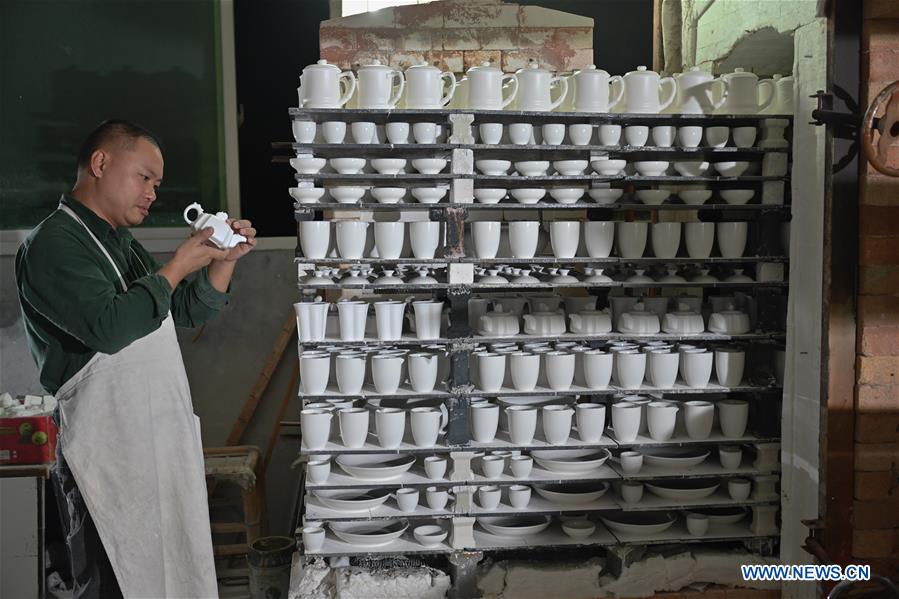
Artisan Xu Jinbao examines freshly fired white porcelain tableware in Dehua county, Quanzhou, southeast China's Fujian Province, Oct. 20, 2020. (Xinhua/Song Weiwei)
In addition to carrying forward the Dehua porcelain craft, local craftsmen have been constantly pursing innovation by creatively developing new porcelain making techniques and applying cultural elements derived from other forms of art, including from the thangka art tradition, in order to make pieces of porcelain.
At a factory operated by the porcelain manufacturer Luzerne (Fujian) Group Co., Ltd., located in Dehua, over 20 intelligent production lines have greatly boosted production capacity at the factory. A worker can make 200 porcelain molds at most in one day, while a robot can finish around 15 times as many.
As new business forms and models are emerging, the porcelain industrial chain in Dehua county is also undergoing a transformation. Xu Haiyan, general manager of a porcelain cultural and creative industry park in Dehua, introduced that they have launched porcelain products that are exquisite and have been infused with elements of everyday fashions through cross-industry collaboration.
Huang Wenjie, secretary of the Communist Party of China (CPC) Dehua committee, revealed that in 2021, the value of the porcelain industry in Dehua reached 45.9 billion yuan ($6.6 billion).
To promote the local porcelain culture, Dehua county has nurtured eight porcelain factories that are now open to tourists, as well as over 300 souvenir manufacturers. At present, 70 percent of the porcelain products from Dehua are available in more than 190 countries and regions around the world.
Photos
Related Stories
- Ancient porcelain kiln site discovered in China's Shanxi
- Inheritor of Jingdezhen porcelain painting integrates traditional art into modern-day life through innovations
- 91-year-old porcelain craftswoman builds a "palace" to carry forward tradition of porcelain culture
- One Minute China: A xylophone made of porcelain bowls
- The art of imperfection in porcelain
- The 2,000-year-old logos on Chinese porcelain
- Ancient Dehua porcelain technique of SE China’s Fujian updated for modern times
- Feature: Turkish ceramic artist meets new opportunities in China's "porcelain capital"
- The secret to Jingdezhen's pre-eminence in porcelain
- Foreign potters mould dreams in China's porcelain capital
Copyright © 2022 People's Daily Online. All Rights Reserved.






